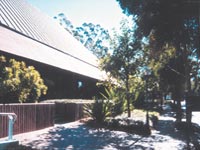Peoples' Tribunals and International Law - JURD7353
Description
Since the 1960s there have been dozens of “peoples’ tribunals”, “citizens’ tribunals” or similar commissions of inquiry established outside formal State and international structures. These have addressed alleged violations of international law, human rights and moral and ethical standards in areas ranging from the conduct of the Vietnam war, through violence against women, to environmental degradation, the impact of debt, and the rights of workers. The aim of this course is to analyse and evaluate the phenomenon of “citizens’ tribunals” and “peoples’ tribunals”. It will examine how these institutions are conceived of by those who establish and participate in them, and will analyse their role as forms of accountability that exist outside State-sponsored structures. The course will explore the importance of legal form to the constitution and conduct of such tribunals, the extent to which international law (existing or desirable) is invoked as part of the argumentation of the tribunals, and the contributions that such tribunals have made to public acceptance and endorsement of international law standards, to the assessment of the legitimacy of government and intergovernmental actions, and to promoting the causes of those who have organsied such tribunals. The course will have as a primary focus the work of the Permanent Peoples’ Tribunal, but will explore other tribunals as well.
More information can be found on the
Course Outline Website.









